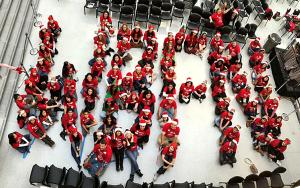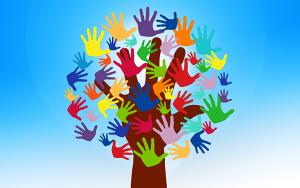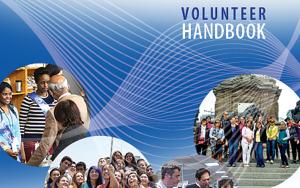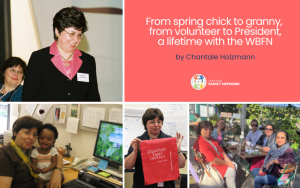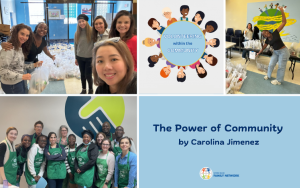
By Gina Wilkinson
Members of the WBGFN often find themselves at a career crossroads when they accompany their partner to a new posting far from home. For Gina Wilkinson this experience was key to forging a new path as a novelist. We asked Gina about her journey, and give you the chance to win a copy of her critically-acclaimed debut, When the Apricots Bloom.
Q: Gina, your novel was chosen by a peak US publishing industry body as one of the top 30 ‘Buzz Books’ of the season. It’s a Target USA Book Club Pick and multiple media outlets worldwide named it one of the most anticipated books of 2021. Can you tell us how it was inspired by your experiences as an expat spouse?
A: My husband currently works for IFC, but back in 2002 he was offered his first job in international development, working with UNICEF in Baghdad. At that time Iraq was still ruled by the dictator Saddam Hussein. Not long after we arrived, I was befriended by a local woman, who I later discovered was an informant for the regime’s secret police, reporting back on my every move.
Years later, when we arrived in Washington DC and joined the WBG family, I was still thinking about this complicated relationship, wondering if had all been an act or if some parts were actually real. I definitely don’t blame my friend for informing on me. In Iraq, if the secret police wanted something, saying ‘no’ wasn’t an option.
So, after settling our kids into school, finding a house, and all the other tasks that go along with moving countries, I started writing When the Apricots Bloom, beginning with the moment the secret police arrive at the home of an Iraqi secretary working at a foreign embassy, and tell her that she has to spy on her boss’s wife. The story that develops after that is fiction, but the inspiration came from my real experiences.
Q: In your novel, the woman being spied on is a young Australian, who goes from being an independent journalist with a career of her own, to a lonely diplomat’s wife, isolated in a foreign country, struggling to deal with her new situation. To what extent is that character autobiographical?
A: I’m Australian and I used to be a journalist, like the character Ally. At that time, Saddam Hussein didn’t permit foreign reporters into Iraq, but after thinking it over, I agreed to put my career on hold. It wasn’t an easy decision, especially when I had to apply for a visa as a ‘dependent spouse’. I really hated that label, and that’s the same visa Ally uses to enter Iraq. But there are also some big differences. For a start, I didn’t go around investigating sensitive matters. I knew I was being watched – I didn’t know it was by a close friend – but before the regime fell, I was very careful to steer clear of anything that might get anyone in trouble with the authorities.
Q: There are three narrators in your book, Huda the reluctant secret police informant, Ally the expat spouse, and Rania, an artist. Can you tell us about the inspiration for Rania’s character?
A: As you know, it can be challenging to make friends in a new duty station, especially if there are language or cultural barriers. At that time, I was the only foreign UN or WBG spouse in Baghdad. Meanwhile, my local friends were nervous about being seen with me in public due to the risk that we’d attract the attention of the secret police. Luckily, Baghdad had more than two dozen independent art galleries, and that’s where I spent a lot of my free time. Iraq has an amazing artistic heritage dating back thousands of years, and artists still play an important and respected role as conduits to the outside world. This gave me and my Iraqi artist friends a little more freedom to associate than we would have had otherwise. Rania’s character allowed me to show that wonderful side of life in Baghdad, with amazing culture and wonderful creative people.
Did you get any help from the WBGFN in creating your new career as a novelist?
In practical terms, I attended an information session on getting a work permit and a social security number. That was really helpful when it came time to sign the contract with my US publishers. But in a broader and equally important sense, the network provided encouragement and inspiration. In Baghdad almost 20 years ago, I was the only spouse in the international community and I had to make my own way. But the WBGFN offers so many opportunities to meet, even if only by Zoom at the moment. You can connect with people who understand your situation and the pros and cons, learn from their experiences, and of course, make some great friends too.
Q: How have your Iraqi friends responded to your book?
A: Three of my close Iraqi friends read the manuscript prior to publication and helped with fact checking, but all of them have been a fantastic source of encouragement in writing this book. We went through a lot of heartache together, especially once the Iraq war erupted, and that created a bond that’s very strong. They are a real inspiration to me. They’re survivors. They’ve been able to rise above all the things they’ve suffered. And I hope this novel shows Iraqi women as I found them to be –smart, resilient, warm and loving.
Q: There’s a big push for greater diversity in the publishing world and to read more from ‘our own voices. Two of the three main characters in your book are Iraqi women – what’s been the reaction to you, a white, western woman, writing from an Iraqi woman’s point of view?
A: The publishing industry has marginalized authors outside of the white, western mainstream for far too long. In this polarized era, we need more diverse books, written by diverse authors, in settings and situations that reflect the deep richness of our world. At the same time, like PEN America, I don’t believe in setting ‘rigid rules’ about who has the right to tell which stories, or that an author should be confined to creating only characters with a similar background or genetic code.
One important point that I aimed to show in Where the Apricots Bloom is that, despite different backgrounds, we share so much in common. I think many women would see aspects of their own lives reflected through the Iraqi characters in my book. They have to juggle the competing demands of work and home life, just like anyone else. They fall off the diet bandwagon, they have to face angry teachers when their teenagers skip school. I think fiction is a fantastic way to show that while we might pray in a different manner or bake our bread differently – at heart, we want the same things, we laugh the same, and we feel the same pain. I think when done right, books can unite us, and illuminate what we share, not divide us.
Restrict content to registered Users?:
0

